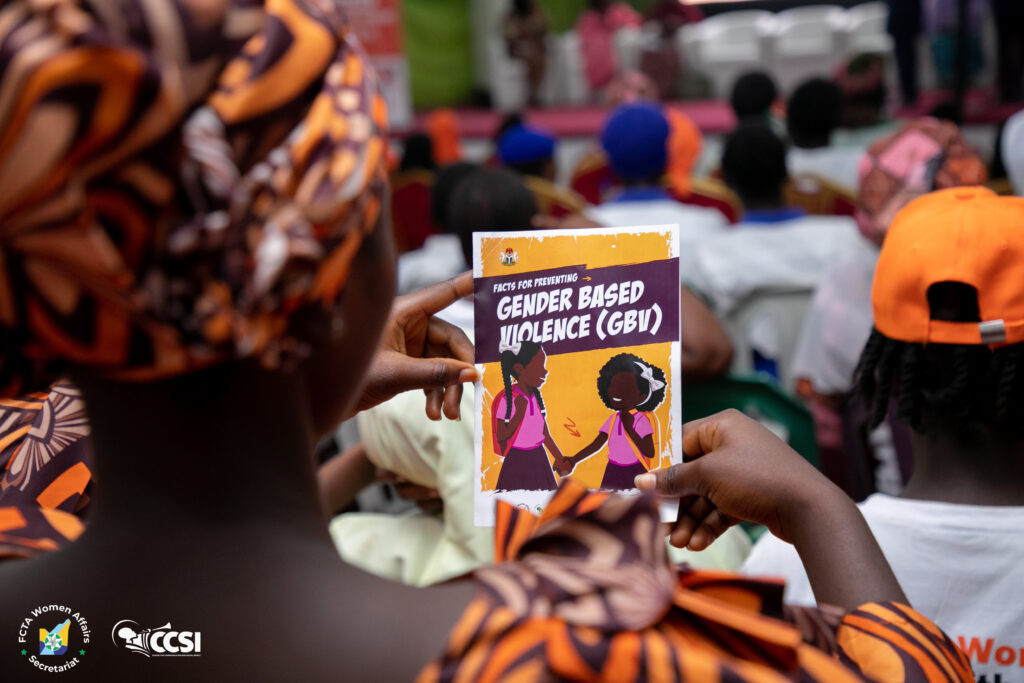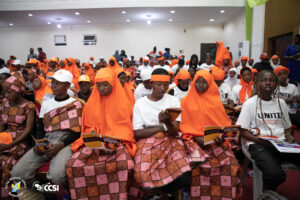
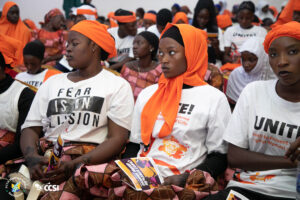
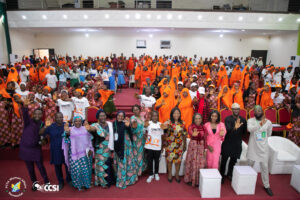
Imagine this vibrant scene – young schoolgirls clad in brilliant orange attires, gathered to learn how to tackle a crucial issue: gender-based violence (GBV).
The endgame? To broaden their understanding about GBV, raise their level of consciousness on the warning signs, and to be able to develop the confidence to speak out should they find themselves in vulnerable situations.
GBV is an agelong social epidemic of very grave consequences to the individual, their families, and the nation. While it cuts across all genders and ages, women and girls are the most affected. The United Nations defines GBV as, “any act of gender-based violence that results in, or is likely to result in, physical, sexual or psychological harm or suffering to women…whether occurring in public or private life.”
Over the years, cases of GBV have continued to rise because of the entrenched “culture of silence” in communities. A lot of women, girls, and their families don’t report cases of GBV for a sundry of reasons, including the fear of shame, stigmatisation, and victimisation, among others.
According to data from the Federal Ministry of Women Affairs, reported cases of GBV increased from 3,067 in the year 2020, to 29,699 reported cases in 2023. Also, the number of convicted perpetrators increased from 39 in 2020, to 268 in the year 2023.
Although this is still a far cry from what is expected, it is encouraging that the country has started to see more reported cases. However, more cases remain unreported, leaving many more perpetrators roaming the streets free. Stakeholders in the GBV space have therefore called on the government to ramp-up its punishment mechanisms for perpetrators of GBV.
GBV can come in several forms, including domestic violence, rape, sexual harassment, reproductive coercion, pedophile, mob violence, and others.
In her remarks during a GBV event organized by Nigeria’s Federal Capital Territory (FCT), tagged ‘FCT Orange Girls’, the Executive Director of the Centre for Communication and Social Impact (CCSI), Babafunke Fagbemi, stressed that every child, in this case, the girl-child, has a right to health, education, protection, and other rights that make them safe, happy, and healthy.
Speaking on the different forms of gender-based violence and ways to avoid them, Fagbemi told the schoolgirls, “There are different forms of violence. However, to be able to avoid them, you must do the following: Trust your instincts. If it doesn’t feel right, it is definitely not right; Establish and communicate boundaries. Know your limit and stick to it. Don’t say no and your body language does not speak to it; Build your self-esteem and confidence. Every girl has a right to their self-esteem. Anything that will not allow you to have confidence should be taken away.
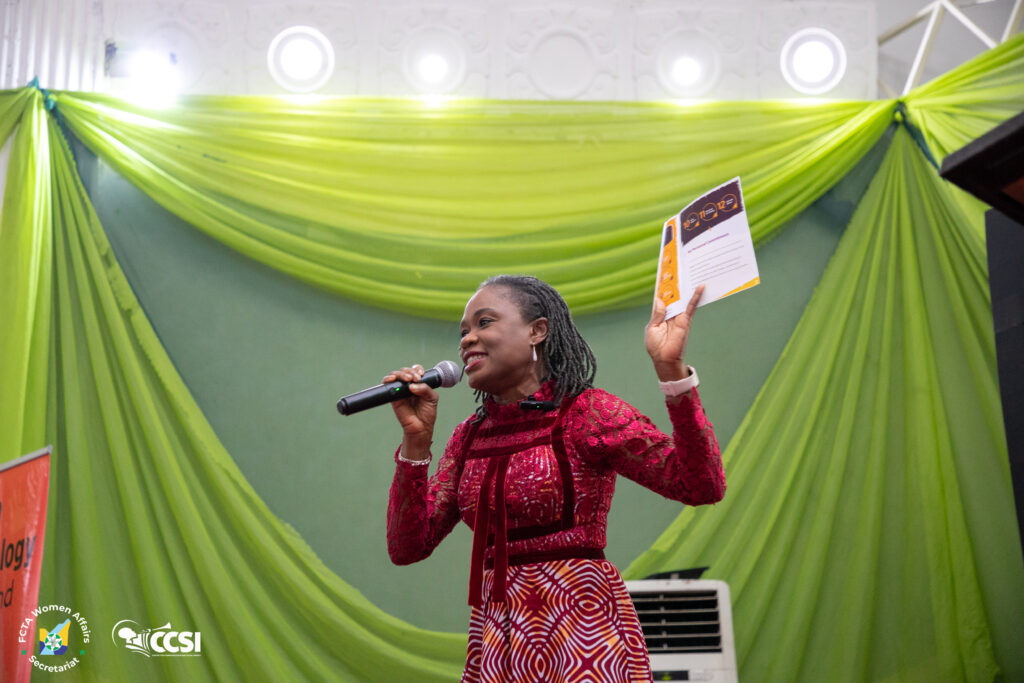
“Other precautions are: Maintain a healthy relationship. Any relationship that will take away your peace of mind is not worth it; Practice online safety and protect your privacy. Do not reveal everything about you online. Also eschew wrong images of yourself like naked photos, etc.; Learn self-defense; Lastly, report cases of gender-based violence immediately. You can call 08078111126 to report cases of gender-based violence.
“Preventing gender-based violence is a collective effort, and everyone must play their roles to achieve this.”
To ensure that the girls internalised the message, she charged them to take a pledge to stand against gender-based violence. The girls ended their pledge with the popular phrase – “So help me God!”
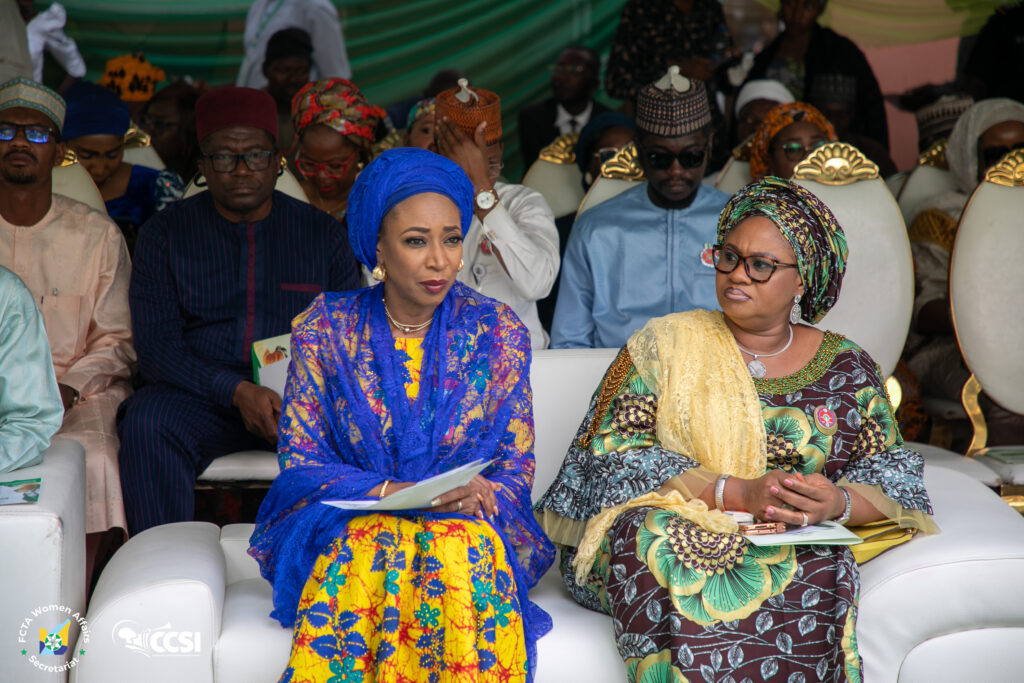
To ensure that cases of GBV are drastically reduced, if not totally eradicated, especially in Nigeria’s Capital, FCT, President Bola Ahmed Tinubu, through his “Renewed Hope” agenda, has mandated the leadership of the FCT to reduce the cases of GBV to its barest.
Spearheading this charge by the President is the Minister of the FCT, Nyesome Wike; Minister of State of the FCT, Mariya Mahmoud Bunkure; Mandate Secretary for Women Affairs in the FCT, Adedayo Benjamins-Laniyi, among other top government officials and Ministries, Departments, and Agencies (MDAs).
Also, speaking during the FCT Orange Girls event which was on the sidelines for the Renewed Hope Initiative: Elderly Support Scheme (RHIESS) by the First Lady of Nigeria, Sen. Oluremi Tinubu, in Abuja, the National Data Manager on GBV, Federal Ministry of Women Affairs, Sunday Sanusi-Agbabiaka, disclosed that girls between the ages of 10 to 19 are the most vulnerable to GBV. Hence, the urgent need to educate them on safety and reporting measures.
Speaking about gender-based violence, Sanusi-Agbabiaka said, “In 2020, there were 3,067 reported cases; 105 fatal cases; 286 closed cases; 786 open cases, and 39 convicted perpetrators. In 2021, there were 7,932 reported cases; 248 fatal cases; 502 closed cases; 2,366 open cases, and 85 convicted perpetrators.
“In 2022, there were 16,864 reported cases; 726 fatal cases; 1,177 closed cases; 6,015 open cases, and 268 convicted perpetrators. However, in 2023, there were 29,699 reported cases; 1,308 fatal cases; 1,911 closed cases; 10,288 open cases, and 268 convicted perpetrators.
“Young girls between the ages 10 to 14, and 15 to 19, are the most vulnerable. The major reason why GBV continues to grow is because people are not being convicted.
“There is a dashboard capturing all the data on gender-based violence. There is also a toll-free line in the FCT and at the Federal level. The Police, Nigeria Security and Civil Defence Corps (NSCDC) are there to make the arrest after a report.
“We also have health services and psychosocial counseling for survivors of GBV across the 36 states and the FCT. As a country, we are not doing well in terms of service. We must ramp-up efforts in this regard.
“The President has given the Ministry a mandate to achieve a reduction of GBV between 2024 and 2027. However, the success of this largely depends on everyone, and how well we report the perpetrators of these evil acts, so that they can be punished.”
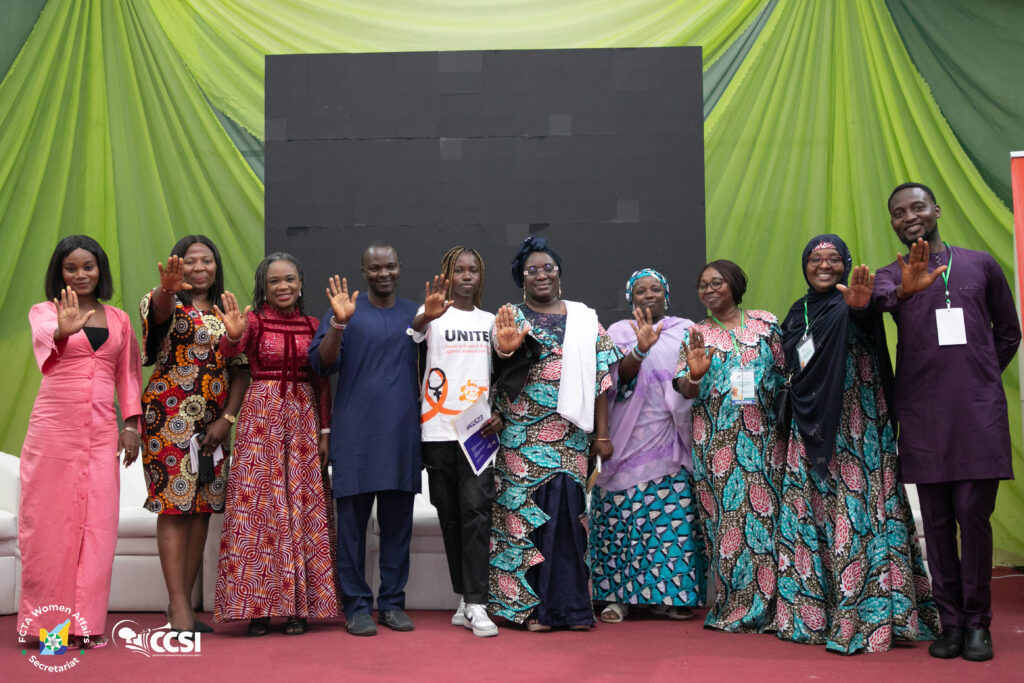
Dr Jumai Ahmadu, President, Helpline Social Support Initiative, added, “The purpose of the program is to let girls know that they are the pride of the nation. We want to ensure that they grow to be very powerful women that can contribute significantly to the growth and development of their communities. Also, we want to encourage them to be excellent in their academics.”
Maryam Abdullahi, FCT Primary Healthcare Board, Monitoring & Evaluation Officer/Gender Health Unit, called on all girls, women, including men to break the silence, to break the chains holding them from standing up against GBV. She stressed that until everyone stands against GBV, reports the cases, and the government prosecutes the offenders, no girl-child in the country can be truly safe.
An adolescent GBV Advocate, Agbonze Princess, who is also the President of the Gender Club, Government Girls Secondary School, Dutse, Abuja, in a thought-provoking speech, reinforced the urgent need for girls to know who they are and their rights. She called on all stakeholders to increase their collaborative efforts to see that GBV is reduced to its barest, while ensuring that perpetrators face the full wrath of the law.
______________________________________________________________________________________________
About Us
The Centre for Communication and Social Impact (CCSI) is a leading Social and Behaviour Change (SBC) organization with expertise in utilizing evidence from research to implement effective strategies that address barriers preventing designated audiences from adopting recommended behaviors.
Birthed by the Johns Hopkins Center for Communication Programs (JHCCP), Baltimore, USA, and registered in 2001 as a Non-Governmental Organization with the Corporate Affairs Commission of Nigeria, CCSI continues to work towards being the center of excellence in strategic communications in Africa.
Driven by values of integrity, passion, care, innovation, and excellence, CCSI focuses on the central role of strategic communication to impact behaviors, build brands, and provide technical leadership in health and social development.
